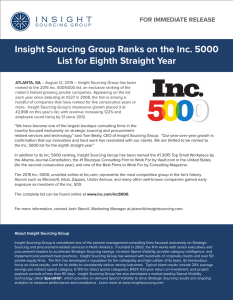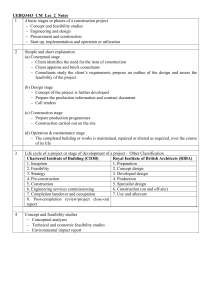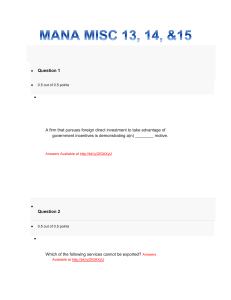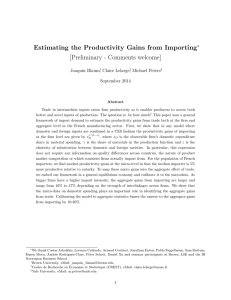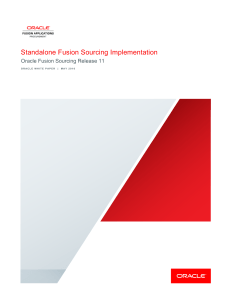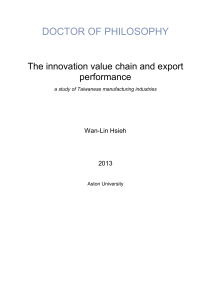We study sourcing decisions of firms in a multi-tiered supply... disruption risk. We argue that the presence of non-convexities in...
advertisement
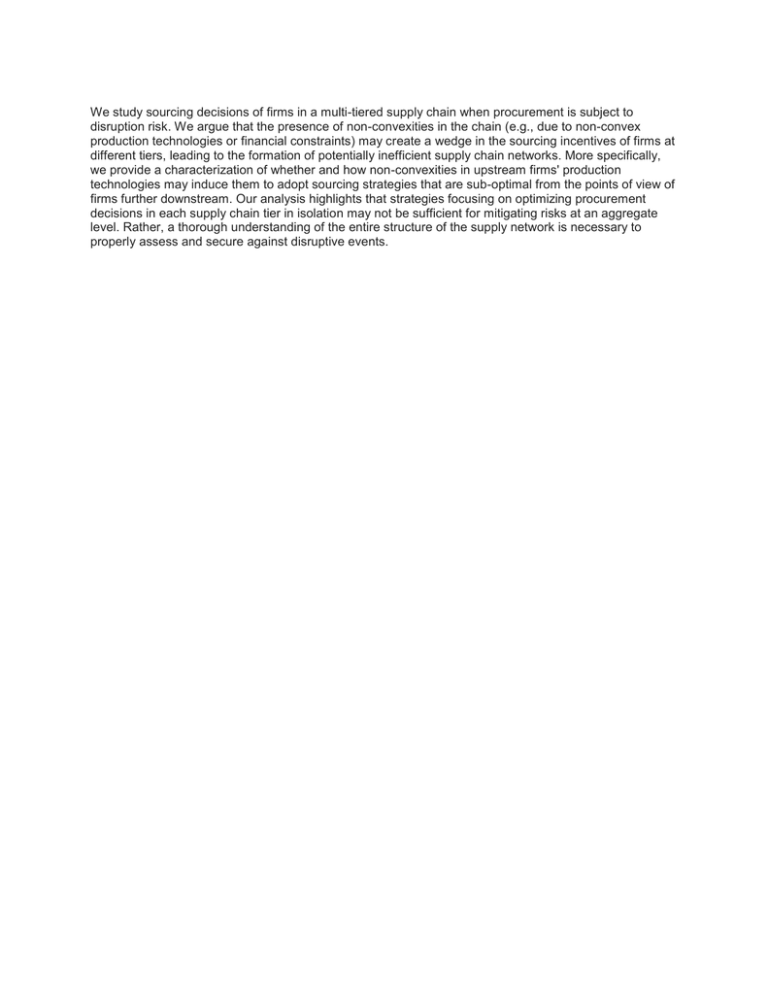
We study sourcing decisions of firms in a multi-tiered supply chain when procurement is subject to disruption risk. We argue that the presence of non-convexities in the chain (e.g., due to non-convex production technologies or financial constraints) may create a wedge in the sourcing incentives of firms at different tiers, leading to the formation of potentially inefficient supply chain networks. More specifically, we provide a characterization of whether and how non-convexities in upstream firms' production technologies may induce them to adopt sourcing strategies that are sub-optimal from the points of view of firms further downstream. Our analysis highlights that strategies focusing on optimizing procurement decisions in each supply chain tier in isolation may not be sufficient for mitigating risks at an aggregate level. Rather, a thorough understanding of the entire structure of the supply network is necessary to properly assess and secure against disruptive events.





